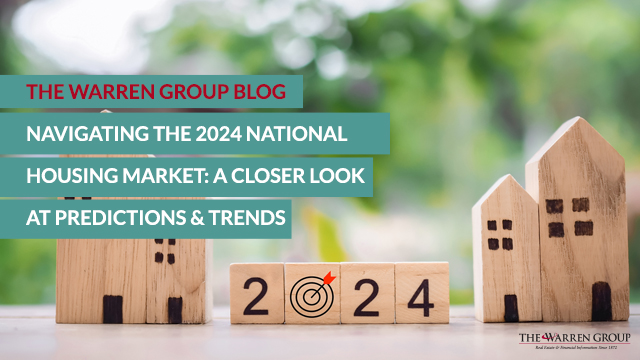As we step into the new year, the national housing market is poised for significant changes, with experts offering insights into what 2024 might hold. From a marked turn in mortgage rates to the anticipation of increased single-family home construction, the dynamics of the housing market are set to undergo a transformation. Let’s delve into the predictions made by leading economists and experts to better understand the factors shaping 2024 housing market predictions.
Shift in Mortgage Rates
“A marked turn can be expected as mortgage rates have plunged in recent weeks,” says National Association of Realtors Chief Economist Lawrence Yun.
The trajectory of mortgage rates is a crucial factor influencing the housing market. A decrease in mortgage rates can stimulate demand for homes as it makes homeownership more accessible. Lawrence Yun’s observation suggests a significant shift in mortgage rates, implying potential opportunities for homebuyers. Lower rates not only attract new buyers but also encourage existing homeowners to explore refinancing options, injecting further dynamism into the market.
Options and Construction Upsurge
“Households will have more options in 2024 from a small uptick in single-family home construction, and the completion of the large number of multifamily units that are under construction, the vast majority of which are destined to be rental homes,” says Danielle Hale, chief economist for Realtor.com.
Danielle Hale highlights a twofold development – an increase in single-family home construction and the completion of numerous multifamily units, predominantly intended for rental purposes. The surge in construction activities contributes to expanding housing options, potentially easing the strain on tight housing inventories. More options empower prospective buyers and renters, fostering a healthier real estate ecosystem.
Market Stability and Mortgage Rates
“Mortgage rates are likely to remain well above pandemic-era record lows because financial markets increasingly believe the country will avoid a recession in 2024,” says Redfin Chief Economist Daryl Fairweather.
Daryl Fairweather emphasizes the correlation between mortgage rates and economic stability. The expectation of avoiding a recession instills confidence in the financial markets, resulting in mortgage rates staying above record lows. While this may not provide the ultra-low rates seen during the pandemic, it contributes to a sense of stability and confidence in the real estate market.
Relief for Homebuyers
“Mortgage rates will fall to about 6.6 percent by the end of 2024. The gradual decline in rates combined with the small dip in prices will bring homebuyers some much-needed relief,” predicts Daryl Fairweather.
Fairweather’s prediction of a decline in mortgage rates, coupled with a slight dip in home prices, offers a ray of hope for prospective homebuyers. This potential relief comes as a result of various market factors aligning favorably, making homeownership more attainable for a broader spectrum of individuals.
Rise in Single-Family Housing Construction
With a decline in mortgage interest rates and an ongoing housing deficit, Robert Dietz, the chief economist for the National Association of Home Builders is forecasting a gain for single-family housing construction starts in 2024. This will be the first year of increase after declines in 2022 and 2023.
Robert Dietz’s forecast underscores the importance of addressing the housing deficit through increased construction. The rise in single-family housing construction starts signifies a positive shift, potentially mitigating the scarcity of available homes. This trend aligns with the growing demand for single-family homes, especially as remote work continues to influence housing preferences.
As we embark on the journey through 2024, the national housing market appears poised for a transformation, and real estate and mortgage data from The Warren Group can help you stay ahead of trends. The convergence of lower mortgage rates, increased construction activities, and a focus on single-family housing may pave the way for a more balanced and dynamic real estate landscape. However, both buyers and sellers need to stay vigilant and adapt to evolving market conditions to make the most informed decisions in this ever-changing environment.


Recent Comments